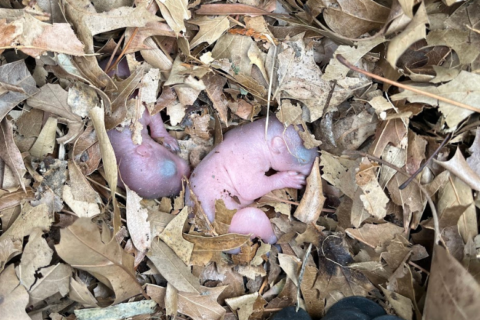Tufted puffins, those adorable black and white birds with big orange beaks, experienced an unusual die-off in the Bering Sea in late 2016 through early 2017. Massive mortality events like this seem to be increasing, likely because of climate change, according to a new study running in PLOS ONE.
Researchers found over 350 carcasses on St. Paul Island in the Bering Sea, Alaska, between October 2016 and January 2017. They estimate anywhere from 3,150 to 8,800 birds died in that time period.
There was no oil spill, nor was there any other dramatic catastrophic event. Scientists think the birds died because they were starving. The adult bird bodies scientists found were severely emaciated. While there were some strong winter storms that kept the birds from foraging toward the end of the time period, they think there is a bigger factor that was keeping the birds from eating — climate change.
That’s because the puffins that live in the area typically dine on fish, but climate change has significantly disrupted the food chain. The fish eat zooplankton, but climate change has warmed the water in the area up so much that the zooplankton and the fish have started to disappear. The seasonal ice cover in the area has also started to melt, eliminating other potential food sources for the birds. Many of the dead birds were molting, meaning they were regrowing their feathers. When a bird goes through this process, it takes a lot of energy and often cannot fly as far, or fly at all, making it even harder for them to get to food.
There have been mass die-offs of the birds before, in 1983 and 1997, that were linked to climate-related food issues, but climate change will likely accelerate these die-offs. Scientists who observed these die-offs will continue to monitor this bird population.
The ocean has been warming a lot faster than scientists originally thought, according to previous research. Unless the birds can move or adapt, puffins in the area may be in grave danger. Tufted puffins at a neighboring island did not see the same die off according to the study. But with the further predicted warming of the water, the increasing prevalence of harmful algae blooms and increasing light levels that will continue to shrink sea ice, climate change could significantly stress birds in this area.







